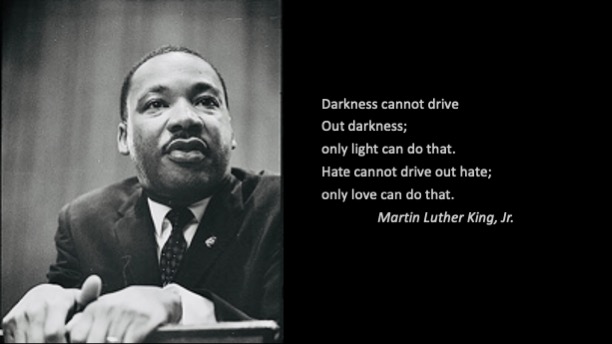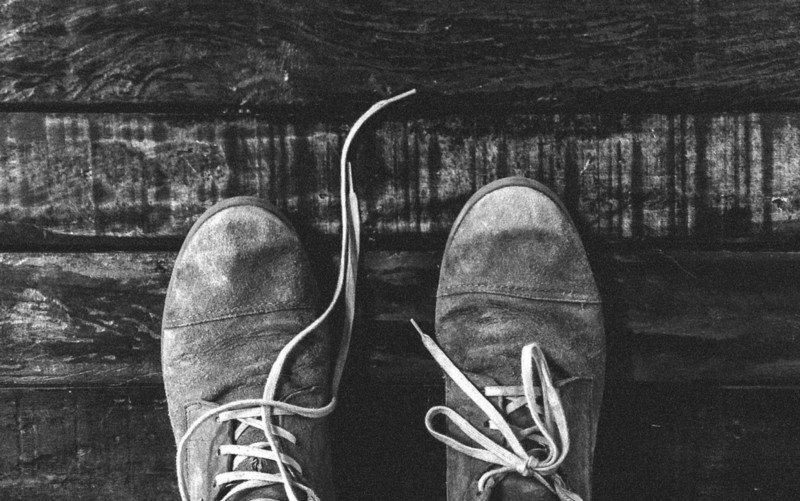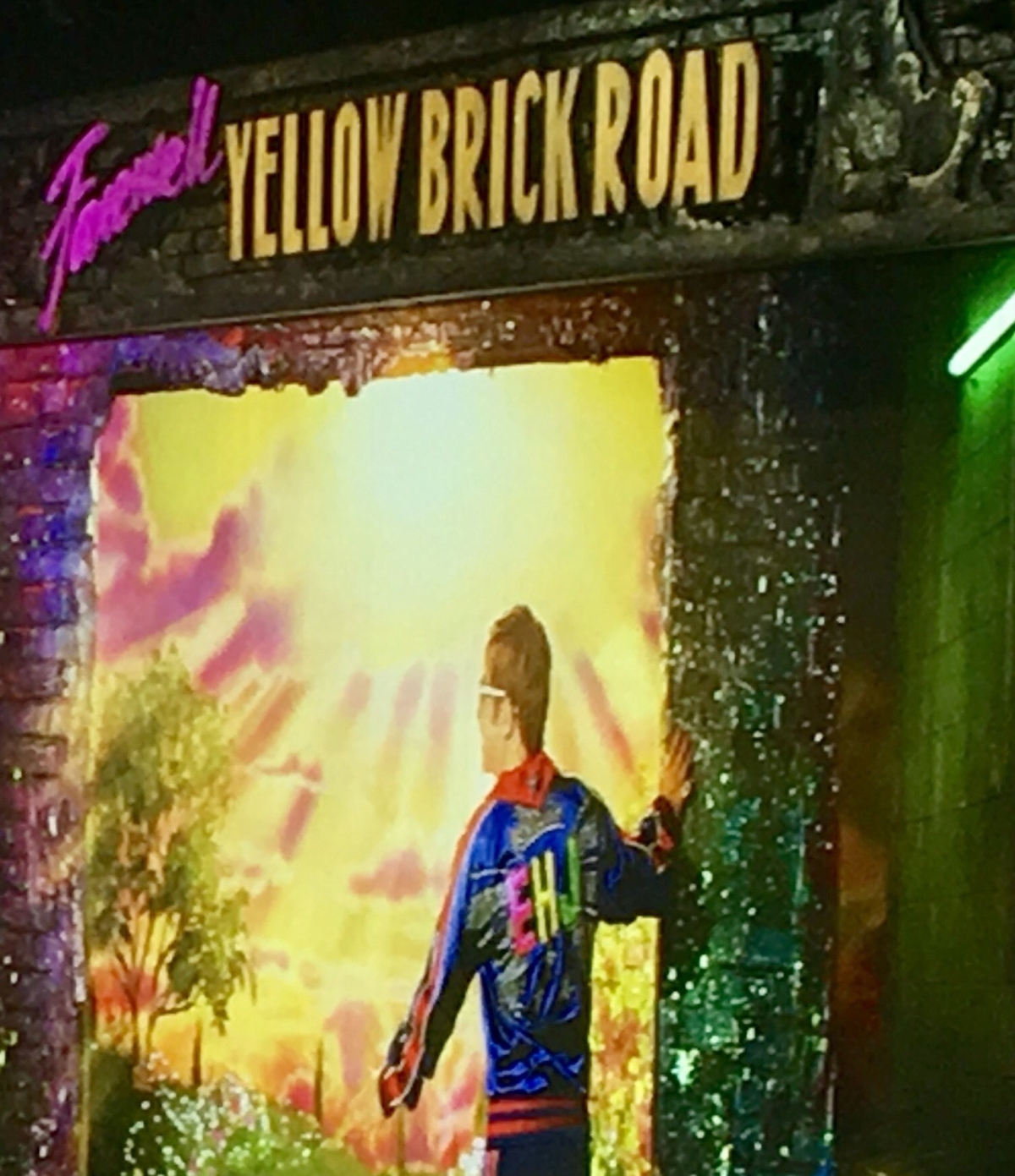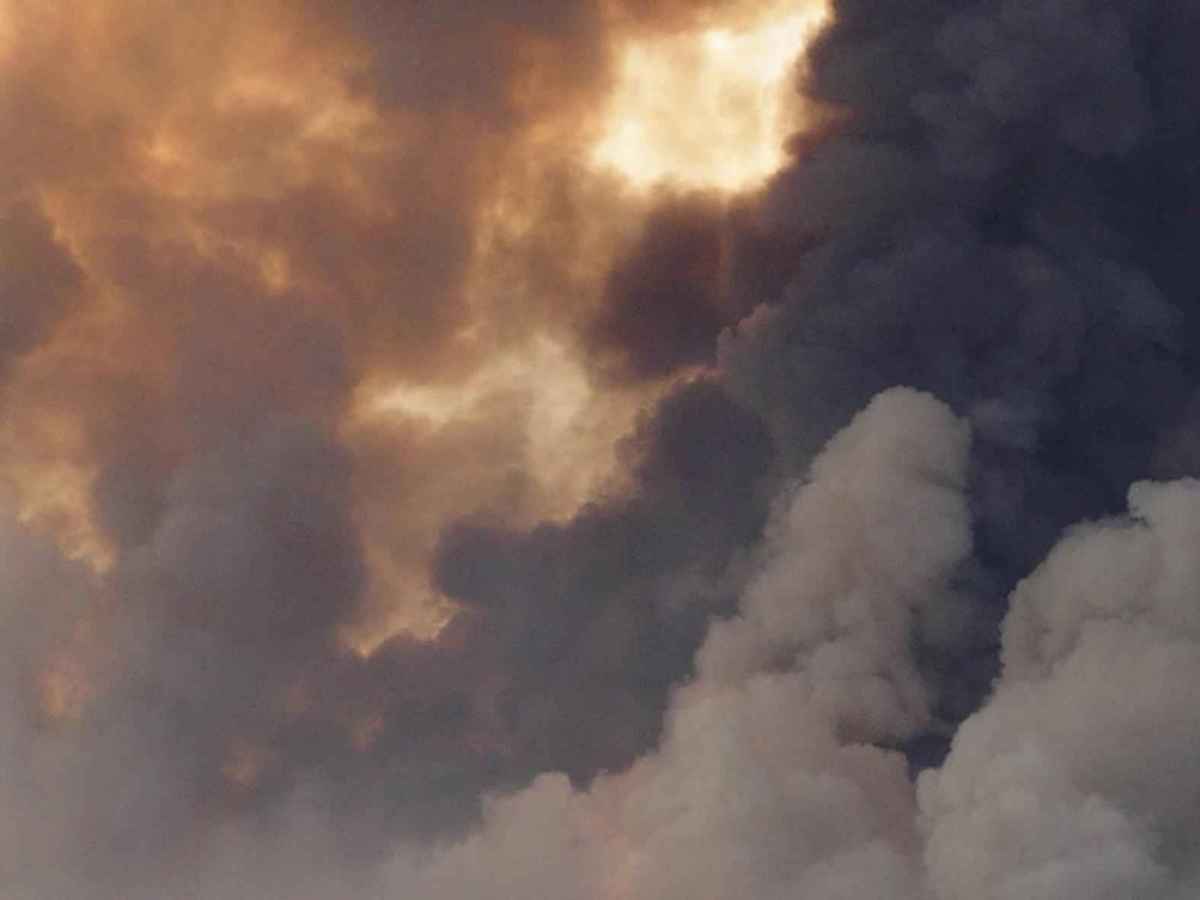I met a man on my way to jury duty. It was a chance meeting, and I never asked his name. I’ll call him John.
I exited the underground metro station at Judiciary Square, confused. I saw nothing familiar except the grayness of a cold winter day in the nation’s capital. I stood in place, turned a complete circle, and contemplated the direction I should take.
Where you headed?”
I answered and turned toward the scratchy voice. The stranger smiled at me with a crooked smile and collapsed top lip, a telltale sign of missing front teeth.
As he fumbled for something inside his backpack. I tried to think of what to say to avoid answering his question. I preferred to find my own way. His appearance suggested there was something about him I should mistrust. I scanned the area for an escape. There were no visible street signs, and no one in the vicinity to save me had I needed it. There was only John.
“The courthouse,” I answered, unable to think of anything but the truth.
“That’s where I’m going. Follow me.” He slung the dingy backpack over his shoulder and waited for me to catch up. I felt a tinge of vulnerability but had no immediate solution to avoid being rude to this stranger, something I’d been taught at an early age not to do.
I fell in alongside John. The street and sidewalk were unusually deserted for a weekday morning. Being trained in defensive tactics, I bladed my body strategically. I was in the position to cold cock him with my oversized hobo bag, weighed down with bottled water, snacks, and a hardback book, if necessary.
I kept one eye on John, alert for any fast movements. We were several steps into the journey before I noticed he was holding what appeared to be a joint. “This could end badly,” I thought.
It was out of character for me to walk shoulder-to-shoulder with a dusty, sandy-haired person like John. Someone who appeared to me to have lived a life that had not been kind. It was equally unusual for me to engage in conversation forced upon me by someone like him. For reasons I’ve yet to define, I was slightly annoyed by John’s presumed familiarity with me, but by then, I was relatively sure he was harmless.
His kindness was peculiar, and he was oblivious to what should have been obvious; I was less than thrilled to be in his company. Perhaps he understood that and wanted to walk with me anyway. The evening news and my last stint serving on a grand jury two years before reinforced my predisposition to avoid strangers on the street at all costs, particularly ones that looked like John.
“I’m going to the courthouse to take a piss test,” he said, seemingly for shock value. I turned my nose up at his candor.
When John lit one end of the blunt, I was relieved by the sweet smell of tobacco smoke. I had no idea people still rolled their cigarettes, not the legal ones, anyway. I’d quit smoking long before and usually detested the smell of burning nicotine.
John held the hand-rolled smoke between his thumb and index finger and struggled to wrap his loose lips around it. Between drags and puffs, he shared details of his life and why he was going my way, an unfortunate run-in with the “po-lice.”
His honesty fascinated me. In a world where many go to great lengths to put their best foot forward on Instagram or Facebook, regardless of their circumstances, his transparency was refreshing.
John was an open book and had no regard for his unfortunate privacy. He divulged more details than I cared to hear; getting arrested more than once “for no reason” was of no consequence to him. His words flowed with the lightheartedness of a circus ringmaster, but the edges of his drooping eyelids told a different story. There was a pain in his eyes, yet he willed his voice to share his secrets in a sad “water-under-the-bridge” cadence. His sentences ran together as he rambled from topic to topic, as though he had saved his confessions for an entire year and wished to tell me each of them in as little time as possible.
The judge had allowed him to enter an intervention program that kept him out of jail as long as he remained trouble-free and submitted to regular urinalysis, my word, not John’s. He said it was better than nothing, even if it meant a long train ride from Baltimore, once a week, for six months.
“The cop tried to cut me a break,” he said, showing no sign of animosity toward the police officer who had escorted him from Union Station and told him not to return.
“But then, he arrested me.” He chuckled as he took a deep drag from the blunt he had smoked down to his fingertips. It was a laugh that hinted he knew he’d done something stupid and couldn’t help but laugh.
John admitted he’d been loitering in the station and had been asked to leave twice.
“When I tried to sneak on a train, he said I was going to jail.” He blew smoke into the air, tossed the butt on the ground, and straightened his soiled backpack.
“I guess I didn’t realize how drunk I was. I just wanted to get back to Baltimore. I like Baltimore better than DC. The police are nicer in Baltimore, plus I know the area better. It’s an easier life there. When you know people and know how to get around, it’s easier to stay out of trouble.” It was the kindest thing I’d ever heard anyway say about Baltimore.
John and I walked a few steps in uncomfortable silence. For once, he seemed to be at a loss for words.
I glanced at him from the corner of my eye and noticed the etched lines on his leathery face and the yellowed fingernails of his dry and cracked hands. His pants and boots were larger than expected for a man his height. The unnatural slump in his shoulders that faltered under the overstuffed backpack.
“Yeah, I’m a drunk, but I don’t do no drugs.” His words broke the silence as he sensed what I’d just realized. John was homeless. He is not just a down-on-luck, unhoused person but someone who drinks cheap liquor until he passes out and sleeps wherever he is when he takes his last swig for the night.
“That’s good,” I answered as I remembered my grandmother’s words, “There, but for the grace of God, go I.” The chill I felt was not weather-related.
“I did a line of heroin and smoked some crack once, but I didn’t feel nothing.”
Could this chance meeting with John be a test or a joke? I checked my watch, careful not to flash my wedding rings. I had less than twenty minutes to get to Courtroom B and still be on time.
“I had liquor in me, so I don’t know if that was the reason why or not. Maybe the people I got it from gave me something that wasn’t real dope.”
He said drugs were a waste of money and preferred the less expensive numbing knock-out he got from alcohol. John was the first person I’d spoken to who admitted doing heroin and crack. I wanted to seize the opportunity and inquire more about his experience but felt it would’ve been an intrusion, so I remained quiet and let him do the talking.
I wondered whether I’d ever slipped by John and ignored him as he lay, passed out, atop a street grate as billows of steam rose from the ground, engulfing his motionless body. Perhaps he was that person I saw sprawled on the park bench, covered by a shredded sleeping bag, as brownish-yellow liquid flowed from the midpoint of his body to the grass below.
“Are you sure we’re going the right way?” I asked.
“I’m sure,” he said quickly. I doubted his confidence. I was relieved when I saw a clean-shaven man, telltale government lawyer briefcase in hand, walking in our direction.
“Excuse me, sir, where’s the Superior Court Building?” John asked.
Without stopping or looking directly at us, the stranger pointed in the opposite direction John and I were walking.
“Thank you,” John called after the man, then looked at me with a sheepish grin. “I guess I got turned around.” We did an about-face and headed in the direction from which we came.
“I need to stop drinking. Lord knows it’s gotten me in a world of trouble.”
“Why don’t you then?” I blurted, frustrated that he’d taken me on what felt like a scavenger hunt.
“I guess some people are just weaker than others.” His voice floated away to a different place and time. He’d started drinking when he was ten years old and had continued throughout his life, except the time he was sober for eight years. I estimated he was sixty-five and wondered what it felt like to live most of a lifetime in a fog and why there hadn’t been anything worth stopping for. His parents were long gone, and none of his ex-wives or their children wanted anything to do with him.
“I’m going to get myself together. It’s going to take hard work and energy. I’m not sure I have either left in me.”
Suddenly, pedestrians began to appear from out of nowhere, each one staring at John and me. How unusual we must have looked together: him with his second-hand clothes and me with my black and blonde curly afro and leather moto jacket.
“Maybe it’s a blessing drugs didn’t do anything for you,” I told him, not knowing why or where those words had come.
“Yep, I’m going to get myself together,” he nodded to convince himself.
When we arrived at the courthouse, there were two winding lines of people waiting to enter through building security. A light rain had begun to fall.
“You have a good day,” John wished me.
“You too, and thanks for getting me here,” I told him as he walked away, then stopped at the back of the longer of the two lines, twenty feet away from me. It was an odd thing to do after having walked the whole way with me. I gravitated toward the shorter queue.
Periodically, I looked over my shoulder and back at John. He never looked in my direction. Perhaps he thought that doing so would embarrass me. He stared at the back of the person’s head in front of him in line.
I sat in the crowded juror’s lounge among an assortment of people I avoided eye contact with for the remainder of the day. I never spoke to anyone in the room, and they didn’t talk to me. We engulfed ourselves in the private world of our smartphones. I finished The Brief Wondrous Life of Oscar Wao, switched to Words with Friends, and challenged a random bot who beat me six times.
After seven hours of waiting, the Clerk of Court entered the lounge and announced, “Ladies and Gentlemen, no other jury panels will be needed today. You are free to go. Thank you for fulfilling your civic duty.”
When I left the courthouse, I followed the prominent direction signs to the underground metro station, which I realized was barely a stone’s throw away. I looked around, but there was no sign of John.
These days, I look directly into the faces of those I see on the street, like John. They’re never him. I say hello anyway.





